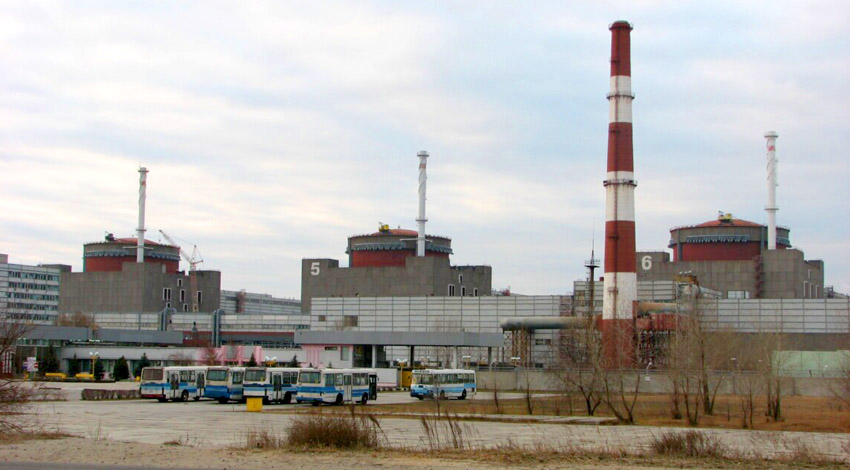
THE Ukrainian army’s continued bombardment of the Zaporozhye Nuclear Power Plant (NPP) is destructive, dangerous and even suicidal, Russian Foreign Ministry spokeswoman Maria Zakharova said yesterday.
‘As for the behaviour of the Kiev regime, it is impossible to describe it in any way other than suicidal,’ she said.
‘The endless attacks on the power plant, the creation of direct threats to a nuclear facility – this is not just destructive and dangerous, but, let me stress it again, it is suicidal.’
Zakharova was quoting United Nations Secretary-General Antonio Guterres’s earlier statement who also described any attack on the ZNPP as ‘suicidal’.
Mikhail Ulyanov, Russian Permanent Representative to International Organisations in Vienna, confirmed yesterday that: ‘The long-awaited International Atomic Energy Agency (IAEA) mission led by Director General Rafael Mariano Grossi is now on its way to the Zaporozhye NPP.’
The inspectors will assess the physical damage to the plant and check the facility’s security and safety systems.
The IAEA experts, led by Grossi, will also have to evaluate staff conditions at the plant and take urgent measures to ensure safety there.
The Zaporozhye NPP, located on the left bank of the Dnieper river, next to the city of Energodar, is under the control of Russian troops.
According to the Russian Ministry of Defence, Ukrainian forces have recently carried out several strikes on the plant, using, among other weapons, drones, heavy artillery and multiple rocket launchers.
In most cases, the attacks have been repelled by air defence systems, but shells have been recorded hitting infrastructure and the area near the nuclear waste storage facility, thereby posing a threat of radiation leakage.
The IAEA earlier stated the necessity of sending an urgent mission to the ZNPP due to the safety risks at the nuclear facility.
Russian Foreign Ministry Spokeswoman Maria Zakharova pointed out on the August 28 programme of the Rossiya 1 TV channel ‘Sunday Evening with Vladimir Soloviev’ that it was Moscow who had been insisting on such a visit and ‘had been doing everything possible for it to take place.’